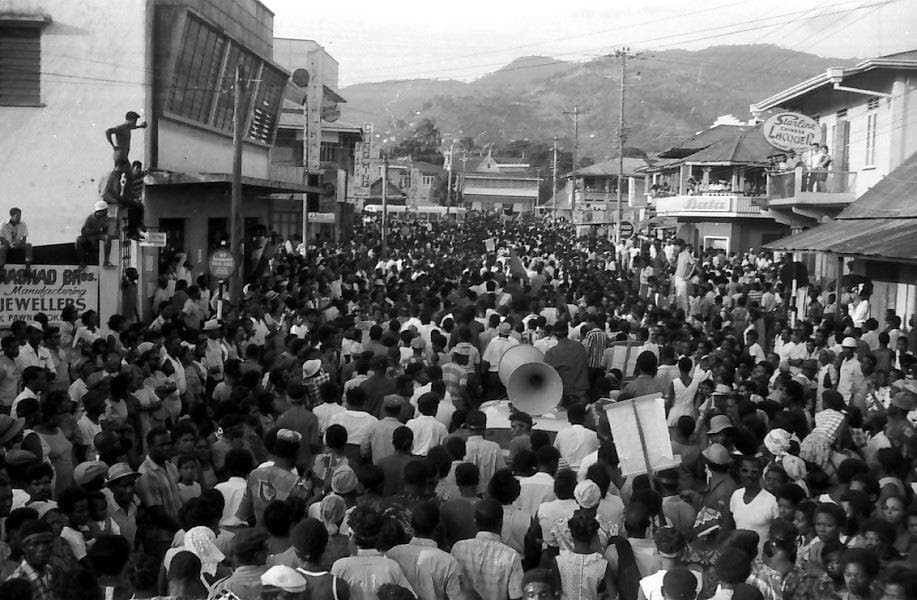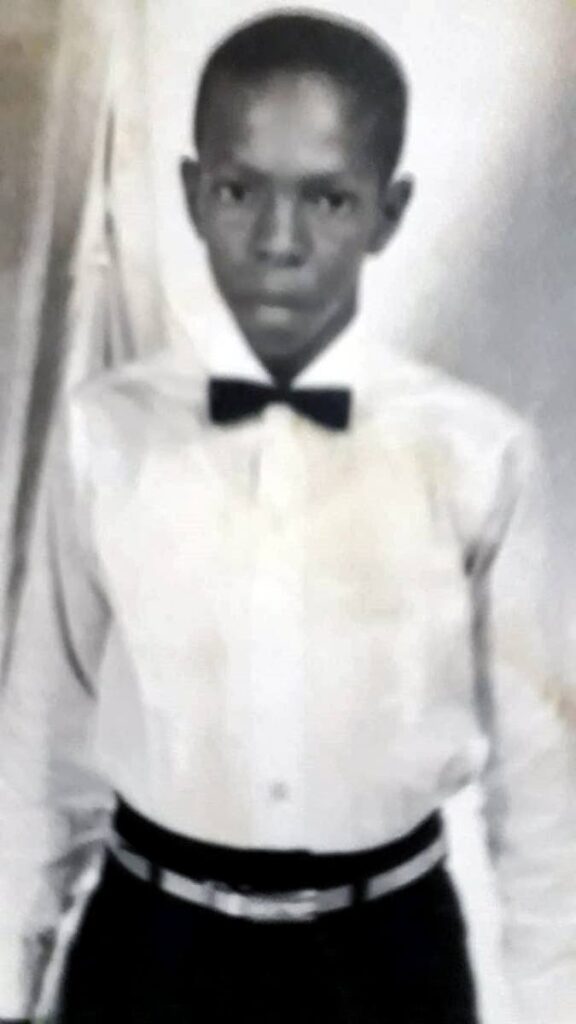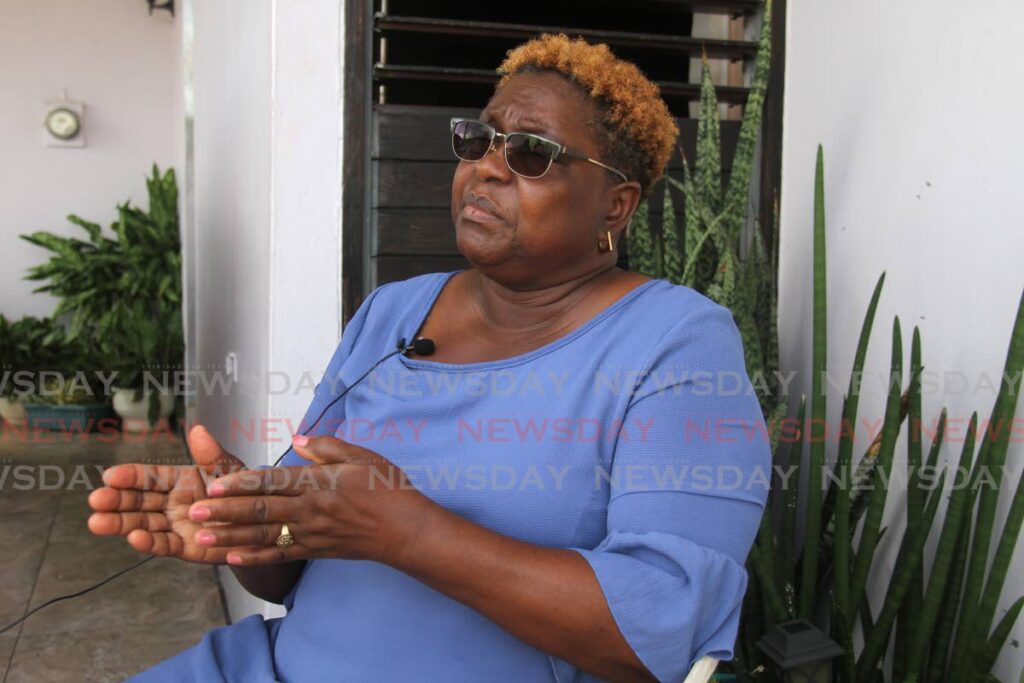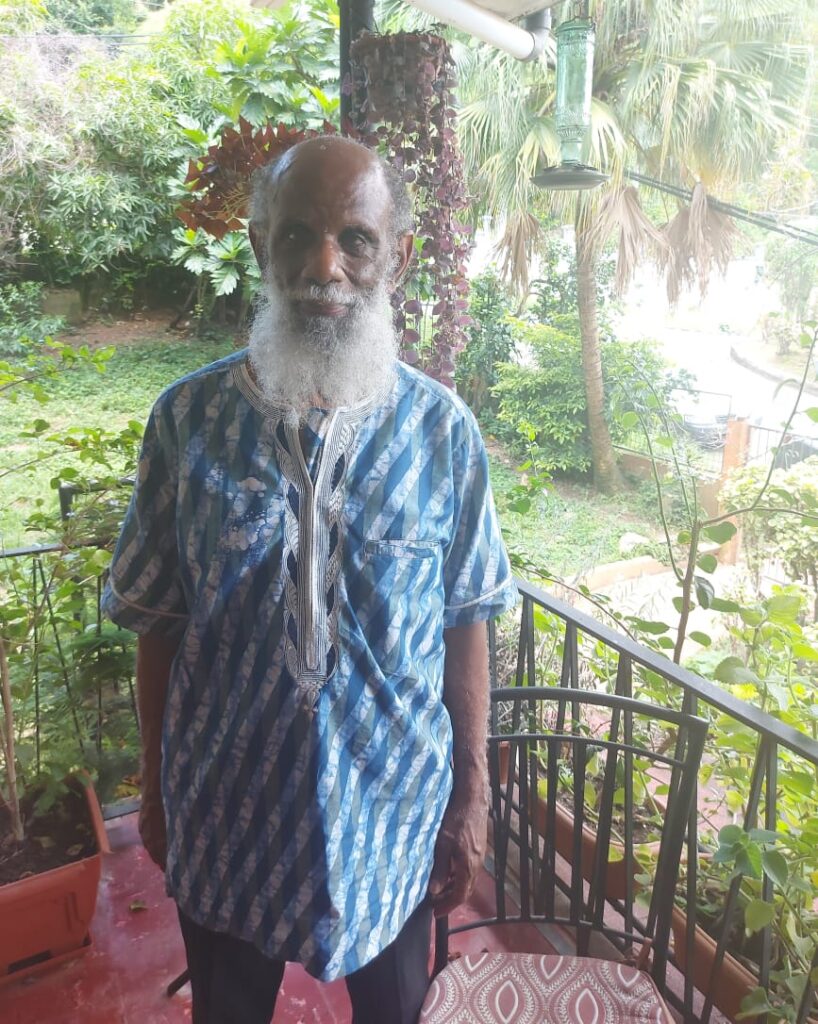1970s: Basil Davis: Forgotten Black Power Movement ‘martyr’

THE echoes of grief still resonate deeply for Ivy Joseph, whose brother Basil Davis was killed on April 6, 1970 at a meeting at Woodford Square in Port of Spain.
Davis, 24 , was shot at point-blank range by police officer Joshua Gordon after pleading with Gordon not to arrest another young man.
In an interview with Newsday, Joseph said decades later, her family has not received justice, as Gordon, now dead, was never arrested, charged or brought to trial to answer for what she believes was the blatant murder of her hero brother, who lost his life defending a comrade.
As Trinidad and Tobago celebrates its 60 years of independence on August 31 and reflects on major post-independence historical events like the Black Power Movement– the effects of which has woven their way into the tapestry of today’s society – Joseph hopes the significance of her brother’s death is also recognised. Especially, as the years passed, any hope she had that her brother would get justice withered away.

“I would like it to be recognised why he died, when he died and what came out of it after that, because it was one of the first such killings in this country…It (Davis’s story) needs to be part of our history told to younger generations,” Joseph said.
“Most of us are moving on in life unaware of the sacrifices and what took place in the past and it is impacting our life now…Our history that brought about certain changes in this country is not being taught, and the younger generations don’t even know about it.”
Davis’s killing is largely credited as a catalyst that increased the Black Power Movement’s momentum which eventually culminated with Prime Minister Dr Eric Williams declaring a state of emergency on April 21, 1970.
Khafra Kambon, then the co-leader of the National Joint Action Committee (alongside Makandal Daaga), the student-led group at the helm of the revolution, said they aimed to even the socioeconomic playing field for oppressed peope of TT who were not white.
“It wasn’t just a class thing in TT. It had a very strong racial characteristic to it. It was ownership, control, as well as discrimination in jobs which was very visible. You had to push a lot if you were dark-skinned especially to be able to rise in society, and that continued even though the African group in society came to take over the politics of the society. And even Dr Williams, as much as he did a lot of good in the society, he did not challenge that structure of the society,” Kambon explained.
“Once (Trinidad-born) Stokely Carmichael in 1966 declared that term, 'Black Power" in the US, it immediately connected in this society.
"It didn’t need NJAC – in fact NJAC was not born yet. It had an immediate, deep emotional connection because of what people were seeing and experiencing in the society. All it took now was for an organisation like NJAC to be born that had a capacity to organise people en masse.”
I wish he had lived a longer life
Joseph, who was nine when her brother was killed, said he, like many other young men at that time, was searching for something to identify with.
“I think in that search, that curiosity, that he followed the movement. He used to attend meetings and we never knew he was attending meetings. We saw the little dashiki and thing, but it never dawned on us that he was following the movement.”

She reminisced about happier times growing up on Third Street, Barataria, as the youngest of 11 children. She said Davis, who worked as a labourer, would often lift her up onto his shoulder and take her to lime with him and his friends, when they would cook anything they could get their hands on and have a lot of fun.
“He was a loving brother, loving son, a caring individual to those around him for the short life he lived, and I wish he had lived a longer life.”
Joseph said everyone in her family was shocked when the news broke about Davis’s killing. Her mother, Violet Davis, took the news badly.
“That particular evening, I was by one of our aunts when we got the news. We have an uncle, my mother's brother, who worked at CID, and he was the one who broke the news to the family. My mother did not take it nicely.
“To me, at that age, it was like: what would happen? Getting such tragic news about one of your relatives passing. Everyone was in shock.
"The focus really at that point in time was on our mother, because she did not take it well.”
Joseph said her mother had no idea Davis was following the movement until he was killed, but insists she had no ill feelings toward the movement.
“I don’t think she blamed the movement for her son’s death. It was just something that happened at that point in time and she accepted it for that.”
Joseph said her mother quietly grieved for Davis up until her death, but never received justice.

“She didn’t talk about him. I think talking about him would have brought on more pain. Looking back now, I can identify now that in her quiet moment, she would have thought of him. Because I myself does think about him.
“You ever pull a string out of a piece of fabric and see how it wavers? I wonder if he was here, if our life would have been different.”
'It was a blatant murder'
Joseph said on the day her brother was killed, he was trying to dissuade police officer Gordon from arresting another participant, "Charlie," at the Black Power demonstration There are conflicting claims about Charlie’s identity. While Joseph claims Charlie was Davis’s friend, Kambon said Charlie was a well-known street-dweller in Port of Spain, and although he may have had some mental health issues, he was harmless. Both Kambon and Joseph agreed that whoever Charlie was, Davis selflessly lost his life saving him from arrest.
“Basil Davis was no violent guy…His (Gordon’s) response to that was to turn around and shoot him at point-blank range. Basil Davis didn’t even have a penknife on him,” Kambon lamented.
Joseph said Gordon knew her brother.
“The officer that killed my brother knew my brother. He didn’t live far from where we lived.
“The individual that did the killing got off. It didn’t go to trial…although it was a blatant murder.”
Joseph also alleged there was some mishandling of information about Davis’s autopsy to protect Gordon, but didn’t go into detail about how she heard that.
“A lot of things went wrong in the autopsy that I came to know in recent times. There are people who are involved, who know, that shared information about the autopsy.
“There was some mishandling of the bullet that killed him and how they went about identifying the body…They forced my mother to identify the body, when she should not have identified the body in the manner that she did.”
Joseph, who does not consider her brother a martyr for the Black Power Movement, debunked the narrative that her brother was one of its leaders, saying, “They made him out to be one of the founders behind the movement, or that was involved in the movement, and that was not true. He was just following and getting information and going to the meetings. He was just going as a young mind.”
Kambon on Davis’s funeral: ‘One of the most significant events of 1970’
Davis was buried on April 9, 1970 in what Kambon claims was the largest funeral that has ever taken place or will ever take place in TT.
The funeral procession, which he estimated boasted over 100,000 people, left Woodford Square for San Juan cemetery and according to both Kambon and Joseph, it was impossible to see where the multitude of people marching started and ended.
Joseph recalled: “They were carrying the casket, no hearse. I was trying to get home to meet the casket and couldn’t get through the crowd. When I did get through the crowd I had to go through the neighbour yard…They had to take me through the kitchen window to see my brother.
“After that they leave to go up San Juan hill cemetery…I was with my aunt. To get to the burial site it was a no-no. I couldn’t see him go down. It was huge. For me who was fighting to go through that crowd at that age.”
Kambon said NJAC, with permission from Davis’s mother, organised the funeral procession, but neither he nor Daaga anticipated the funeral would draw such a large crowd.

“Once you were part of that you could never forget it.
"The way in which he was killed triggered something in the society. This is a revolutionary point in the society’s development. Black Power has really captured the imagination of people…in that environment once you feel that a killing was unjustified, there was an immediate, profound emotional response.
“From pavement to pavement, literally, the street was crowded with people moving. We pushed through...and when we looked east on the main road, people pavement-to-pavement as far as we could see. And we looked back towards Port of Spain: people pavement-to-pavement as far as the eyes could see. We joined the procession and we worked our way up to the front.
"I never ever seen people like that. No Carnival ever had people like that.
"Nobody will ever have a funeral like that. I know you can’t say never, but I can’t see who. He became like a martyr of the movement.”
For Kambon, Davis’s death was “a very significant marker” that he said “changed the dynamics” at that time and fire people up to lend their support to the Black Power Movement.
“Here was someone who was pleading in the spirit of the movement, ‘Give the brother a chance, he is not a bad person’ and for no reason he was killed.
“It was one of the most significant events of 1970.”
'Sixty years of independence but TT learnt nothing'
Both Joseph and Kambon said decades later, even as this country is on the cusp of celebrating 60 years as an independent nation, society and those in authority have learnt nothing.
Joseph said,“I think the true essence and the true cause behind the movement, the information that the public really needs to know about what really happened in 1970 (has been forgotten), other than everybody know there was an uprising. What happened before the uprising, what the people went through at that point in time, a lot of information is being suppressed and not circulated.”
She also lamented the increase in police killings and the disproportionate murder of young black men and encouraged the rebuilding and strengthening of the family structure as a means to combat this.
“We know very well that most homes are headed by women…the fathers are missing who are supposed to bring character and discipline…and that is where our family life is. The men are not there and they are not taking up their responsibility as men to bring up their sons as men.
“The home structure needs to be addressed. My mother had 11 of us. There was not a male figure in the house, but there was support. Now I don’t think we have that kind of family closeness in society, where an uncle or big cousin can come in and talk and discipline. We don’t have that.”
Asked about the increase in police killings and gun violence, with young black men often being the victims, Kambon simply said, ”You learn and you unlearn,” and asserted that the deterioration of society and the ensuing violence were largely due to TTs failing education system.
He called on both the government and civil society to address this issue.
“We live in a more selfish society. Because of the way in which neglect of those communities has caused a lot of violence to develop within them, that has strengthened prejudice against people coming from those communities that are most in need.
"And it needs to be addressed from both a government and civil-society level. And part of addressing it is getting people from outside of these most oppressed communities to understand the dynamics within those communities and what has led to what we are faced with.
“When we look at inequality in the society, and the predictor of growing inequality, you will see it in the results in the education system. Schools that used to do well before, coming from those same communities, are no longer doing well, because the socioeconomic environment has deteriorated to an extent.”

Kambon said in today’s “value system,” education does not fit in.
“The wider society is conditioning an explosion, without realising. We are doing it by inaction, lack of understanding, lack of sympathy and empathy.
"So we have that kind of explosion that is developing that will be very different to 1970 because it will not have that ideological direction to it that you had in 1970."
Instead, Kambon warned, it will be an explosion of rage.


Comments
"1970s: Basil Davis: Forgotten Black Power Movement ‘martyr’"